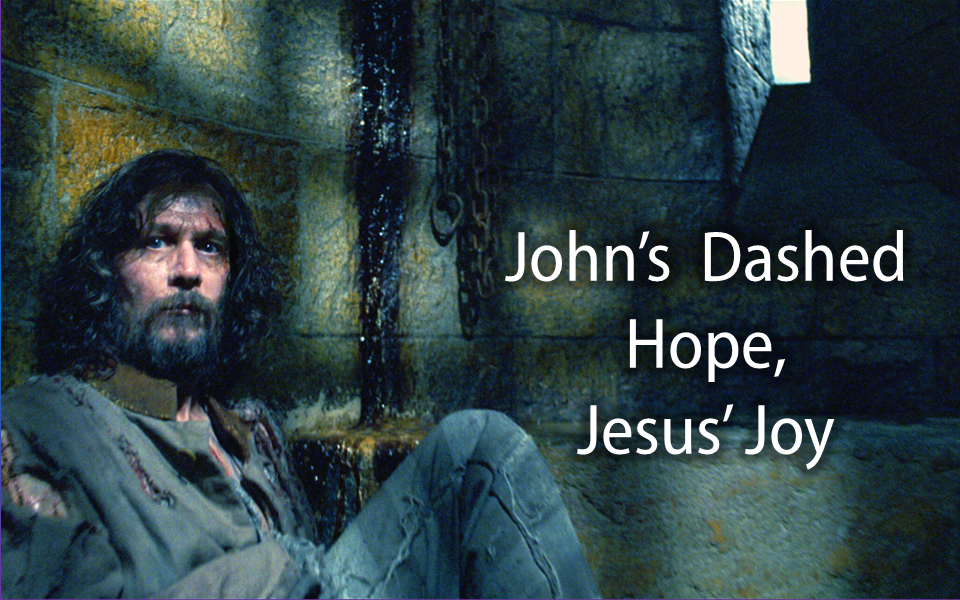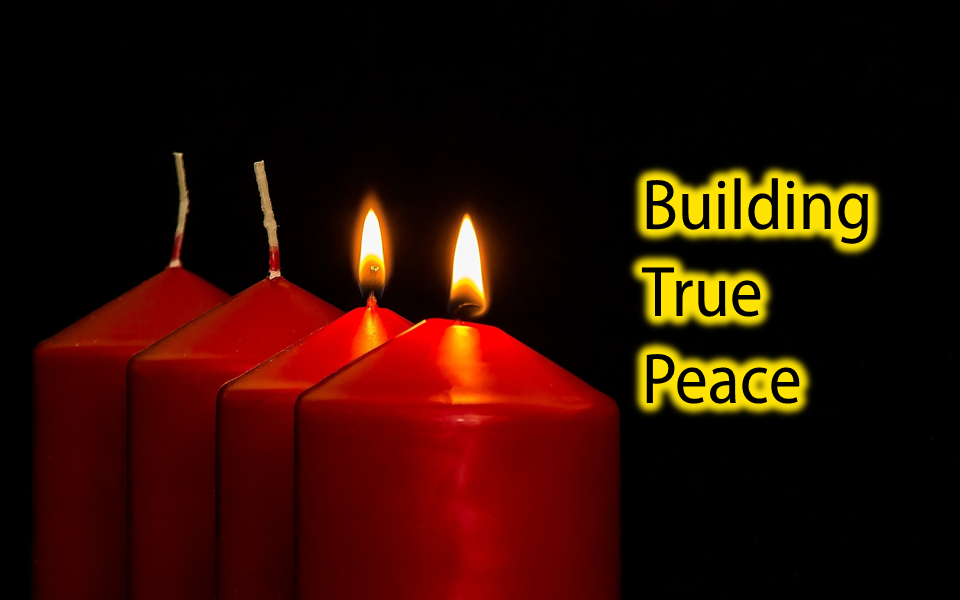Hespeler, 18 December 2022 © Scott McAndless – Advent 4
Isaiah 7:10-16, Psalm 80:1-7, 17-19, Romans 1:1-7, Matthew 1:18-25
It can be difficult to come up with unique approaches and find ways to relate a Bible passage to the concerns and worries we are all dealing with in the world today. So let me tell you one of the things that I do.
Before I start working on a sermon, I often make a point of reading the texts as the last thing I do before turning off the light in bed at night so that I drift off to sleep with that reading in my unconscious mind.
I do this because I have come to understand that dreaming is not just nighttime Netflix. It is not just a little video that your brain puts on to keep your unconscious mind entertained for a few hours while your body rests. It is actually a vital activity that you need to function in the daytime world.
How we Process Information
All day, every day, you are assailed with thousands of pieces of information some of which are vital and some useless. Dreaming is a brain process that allows you to sort through all of that information and discard what you don’t really need. But even more important, it allows you to store the vital information, what your brain thinks you will need, in long-term memory. It does that in a very particular way.
Long-term memory works mostly by making connections. So, the best way for your brain to incorporate new information is to make connections between it and the things that you already know. And there’s one very important way that human beings make connections. They do it by telling stories. In fact, you might even say that story telling is the primary way in which we make sense of the world that we live in.
Why our Dreams are Strange
That might help you understand why it is that the dreams that you have can be these really bizarre stories that don’t even make sense in the real world. When you dream, your unconscious mind is frantically trying to spin a story that will somehow create a narrative link between the things you learned during your day and some of your other essential memories.
It might also help to explain the strange phenomenon that you have probably also experienced where you wake up suddenly, you’ve just come out of a dream and the story is so vivid and bizarre. And then, all of a sudden it seems, the whole dream is just gone.
That is because the point of your dreaming is not for you to remember the dream. That would be to create even more new information for you to integrate into your memory. No, the actual story of your dream is meant to disappear, but the key thing is that the connections that that dream made for you will remain and become a part of the way you look at the world.
Preparing to Preach
And so, when I go to sleep and my last thought is about a Bible passage that I want to preach on, it is my hope that that passage will enter into my dreams and, as a result, I will wake up having made some new connections between that passage and the real issues that I and many of us face in the world today.
So, let me give you an example. The day before I started working on today’s sermon, the last thing I did before turning out the light that night was to open up my Bible app and read these words: “Now the birth of Jesus the Messiah took place in this way. When his mother Mary had been engaged to Joseph, but before they lived together, she was found to be pregnant from the Holy Spirit. Her husband Joseph, being a righteous man and unwilling to expose her to public disgrace, planned to divorce her quietly. But just when he had resolved to do this, an angel of the Lord appeared to him in a dream…”
Programing my Dreams
And then I turned out the light, fluffed my pillow and turned over into my favourite sleeping position. As I did so, I replayed again and again in my head that image of poor Joseph and his disappointment upon hearing the news that the woman his parents had chosen for him to marry was already pregnant. I thought of his indecision, how he hardly wanted to drag the name of this woman he barely knew through the mud, of the accusations that would surely follow. At the same time, he was battling with his desire to maintain his own honour within the community.
I did my best to keep all of these thoughts top of mind, but you know how it is when the fog of sleep begins to gather. I couldn’t help but allow my thoughts to turn to the other things that had been bothering me of late. Would I ever manage to be ready for Christmas? Would I find all of the gifts that I wanted to give? Would the people I gave them to really appreciate them?
And then, well, you know what it is like. Once you open up that door of worry in your mind, all sorts of other causes of anxiety begin to flood in. So, as I drifted off, many things were worrying my unconscious.
Oh, and there’s one other thing, earlier that evening I had watched the classic fantasy film, Willow, for the first time. And so, I began to dream.
My Dream
I was at the shopping mall. There were people everywhere and I remember feeling as if I had so much to do. But, as I moved about tending to my shopping list, other things seem to keep coming along to interrupt me and before long I was engaged in a new quest. Instead of looking for Christmas presents, I seemed to be searching for a child, and not just any child but a child whose fate it was to save the whole world.

The quest very quickly took some strange turns. First Billy Barty showed up and joined me. Then, shortly after Warwick Davis appeared too. I honestly can’t remember all of it that clearly. I remember being worried about the mother of this child and what people might think of her. But somehow, by the end, everything had worked out and we had gathered together with Warwick Davis’s little children and we were celebrating with a modest little feast.
It was all so vivid when I first woke up, but then as I got out of bed and started going about my day, it faded so quickly. I think I only remember it because I tried so hard to do so I could tell it to you.
The full narrative still escapes me. But I was left with one connection that I do not want to lose. Somehow, despite the worries and the fears, despite rather vague feelings of anxiety that always seem to come at this time of year and despite all the confusion between Nelwyn, Daikini and Brownies, I was left with one key connection. Somehow, God is with us. And so, I awoke and began to write this sermon.
Matthew’s Story
A man who wrote a gospel, wrote it quite anonymously, but whom tradition eventually decided was named Matthew, was struggling with his narrative.
There had been others who had written gospels before him, one of which he undoubtedly used as a direct source, but he had decided that he wanted to begin his story a little bit earlier. He wanted to begin with an account of the birth of Jesus. This was something that had never been done before and so he was struggling with it a bit.
He only had a few basic pieces of information. He knew that Jesus was from Nazareth. He knew that he had to have been born in Bethlehem and that he was a descendant of King David because his Bible said that the Messiah had to be both of those things. He knew the name of Jesus’ mother and that he had been a carpenter. That is about it and it’s not a whole lot to build a birth narrative around.
But Matthew knew that there had to be something special about Jesus’ birth because he knew how special Jesus was. And so, he went searching through his Bible, what we would call the Old Testament, to find clues about how it must have happened.
Matthew Goes to Bed
He had been reflecting all day, for example, on the story of Joseph, the son of Jacob, in the Book of Genesis and how he had been a dreamer and had gone down to Egypt. He didn’t really know what, if anything, that had to do with the birth of the Messiah, but it had always been one of his favourite Bible stories.
But that night, before turning in, he had been reading another favourite passage, one from Isaiah: “Again the Lord spoke to Ahaz, saying, ‘Ask a sign of the Lord your God; let it be deep as Sheol or high as heaven.’ But Ahaz said, ‘I will not ask, and I will not put the Lord to the test.’ Then Isaiah said, ‘Hear then, O house of David! Is it too little for you to weary mortals that you weary my God also? Therefore the Lord himself will give you a sign. Look, the young woman is with child and shall bear a son and shall name him Immanuel.’”
Matthew blew out his lamp and drifted off to sleep.
Matthew’s Dream
He found himself back in the times of the sons of Jacob. The eleven brothers were at odds with their young brother Joseph because he was a dreamer who dreamt of the plans of God. And then, it seemed that Matthew and Joseph had entered into a quest together. They were seeking to save a virgin who had fallen under suspicion because she was pregnant.
In his dream, Matthew talked it over with Joseph who wanted to help out the young woman and save her from dishonour but didn’t know what to do. So, Matthew told him that perhaps he ought to sleep on it and he would have another dream to show him the will of God.
And so that is what Joseph did and, while Matthew watched, he dreamt of the woman and the Holy Spirit and he woke up knowing what he would do.
Matthew woke from his bizarre dream. And frankly, many of the crazier aspects of his dream faded quickly. But the strange connections that the story of his dream had made remained with him. The strongest connection of all, of course, being that Emmanuel meant God is with us. Soon after, Matthew took up his pen and he started to write, “Now the birth of Jesus the Messiah took place in this way…”
Joseph’s Dream
And so it is that we came to know that, when Joseph the intended husband of Mary, Jesus’ mother, was troubled by the whole question of how it was that the woman he was to marry was unexpectedly and strangely pregnant, he sought an answer to his dilemma in a dream. He drifted off to sleep thinking of the traditions of his people – of how God had sent angels to help his ancestors, of the incredible promises of the Prophet Isaiah. And he found the answer he was seeking.
The dream that he had, to be sure, was very strange. It involved an angel coming to him and telling him what to do. It gave him an odd image of a virgin who was pregnant from the Holy Spirit whatever that meant.
How important are the specific details of that crazy dream? I don’t know. It could just have been Joseph’s frazzled mind helping him to sort through a sticky dilemma. It could have been divine inspiration. Maybe it was both. What matters is that Joseph woke with a single connection: God is with us. Even more important than that though, he awoke and then acted immediately upon that connection.
Inspiration
I have long remained fascinated by the whole question of the inspiration of scripture. Christian theology affirms that the biblical writers were inspired as they wrote, and I have no quarrel with that. But I often wonder what we are supposed to understand by it. Take the case of the Gospel of Matthew. There really is no question that, whoever wrote that Gospel, used other books and texts and likely oral traditions as sources. One of those sources was the Gospel of Mark.
But he may have been the first to write an account of the birth of Jesus and he didn’t get that story from the Gospel of Mark, which only starts with Jesus fully grown. It is possible, of course, that he did have other sources for that birth narrative that simply no longer exist, but if he didn’t, I know where else he might have looked.
Matthew’s Use of the Old Testament
The author of this gospel clearly believed that the Old Testament was bursting full of information about the life of Jesus in the form of prophecy. Surely he would have not hesitated to draw from that source to fill in any details – details like the birth of a child to a virgin, of a man named Joseph who was led by dreams, maybe especially the detail that it was all about God being with us.
As far as the biblical author was concerned, these were totally legitimate ways to find information on the life of Jesus. And, honestly, who are we to say that they are not?
Making Connections
But it has still left me wondering about exactly where those connections came from. Wouldn’t it be quite awesome if the gospel writer actually left us a clue to his method by telling a story of Joseph who made his key connections as a result of a dream?
And where does that leave us? We also can be dreamers. I think we are also called to make connections that teach us new things about the nature and the love of God. But above all, like Joseph, we are called to take those connections and actually act on them in a way that affects history, that changes the world and that demonstrates for all to see that God really is with us.

